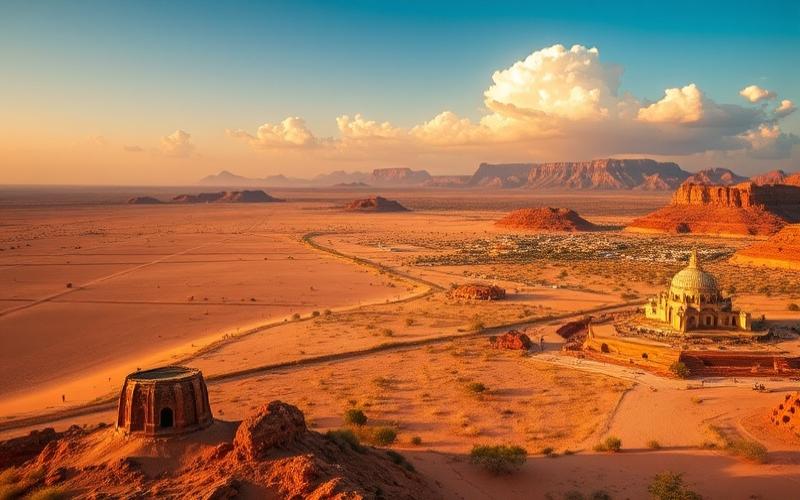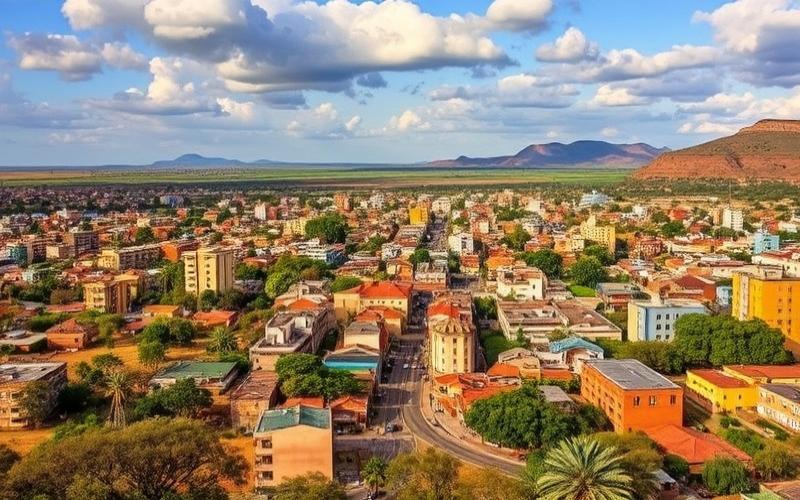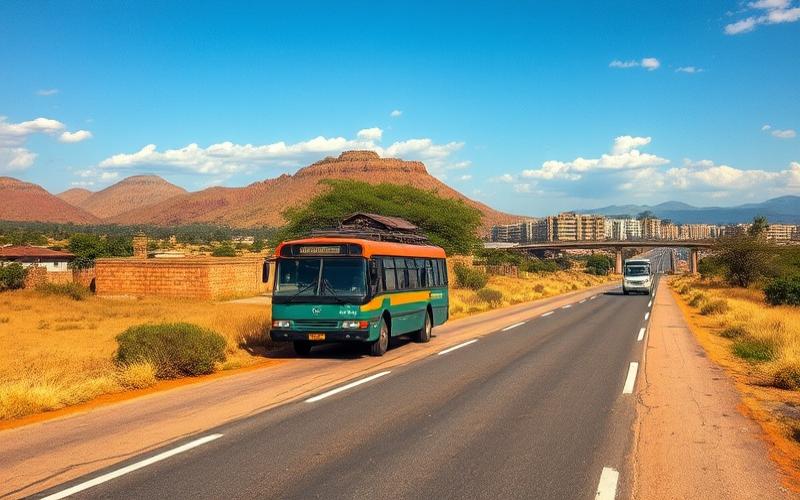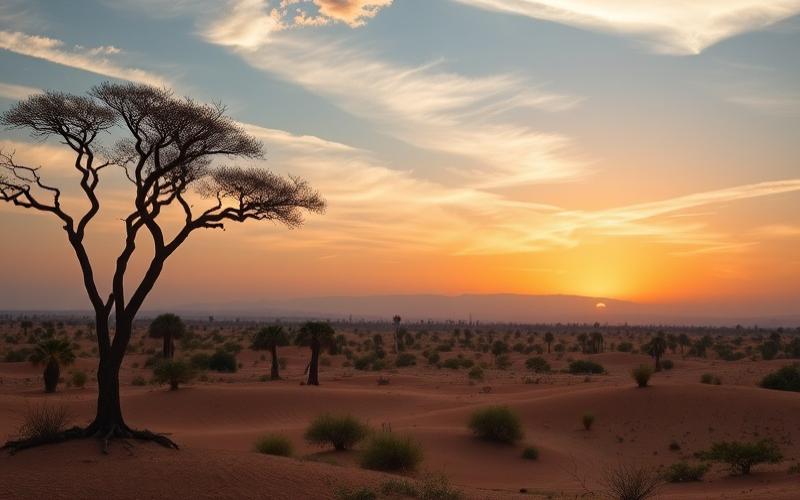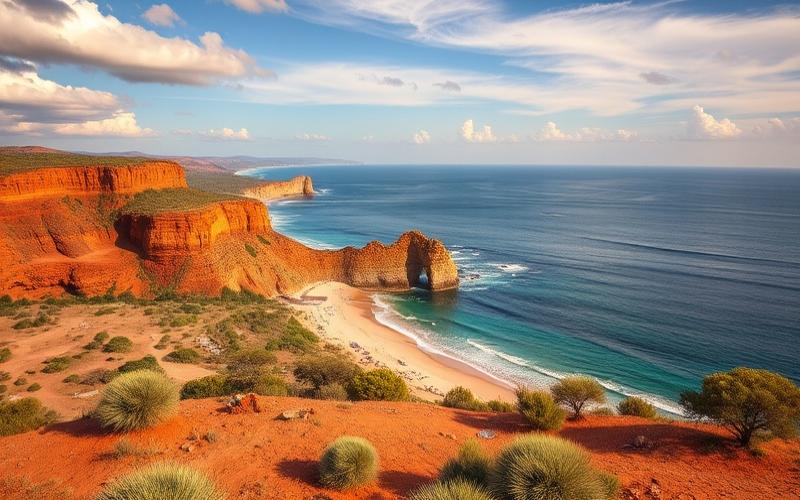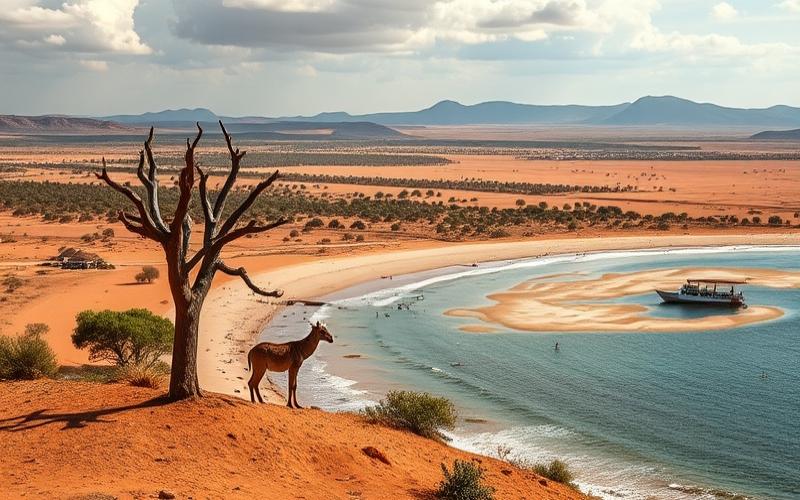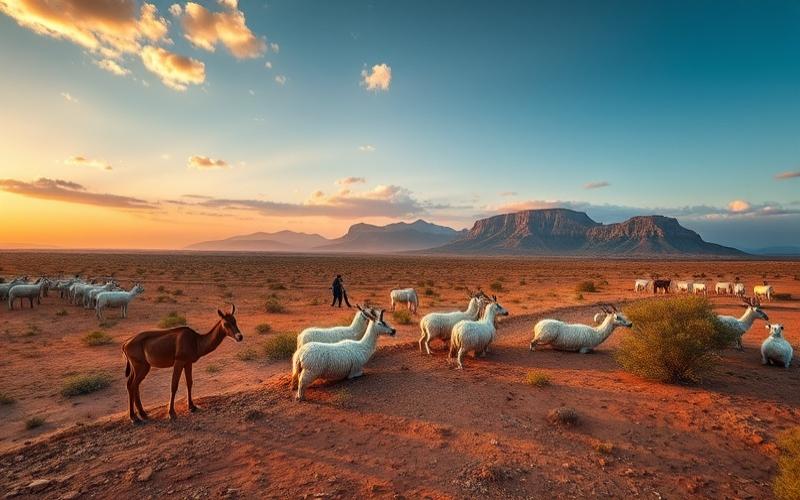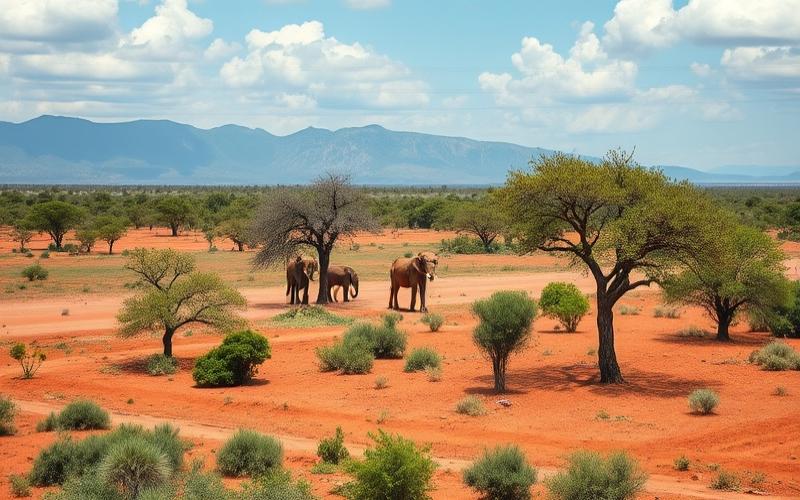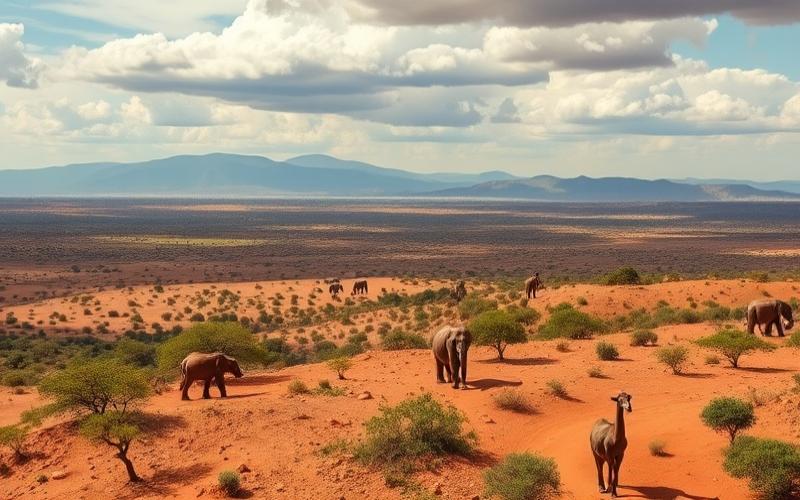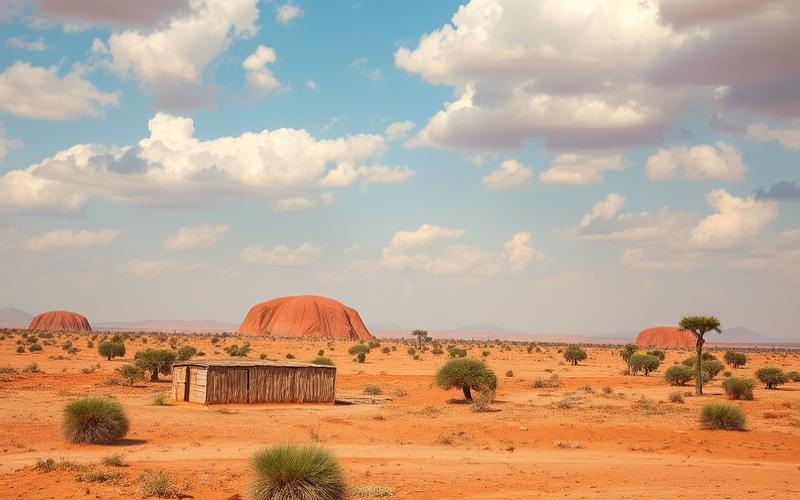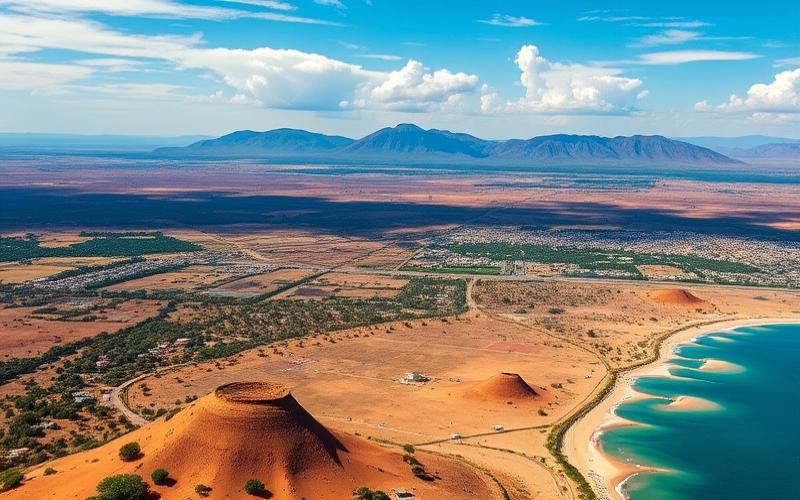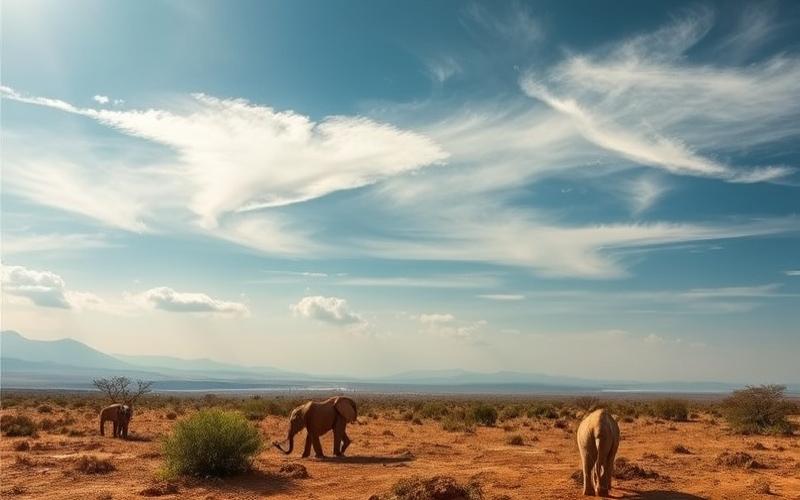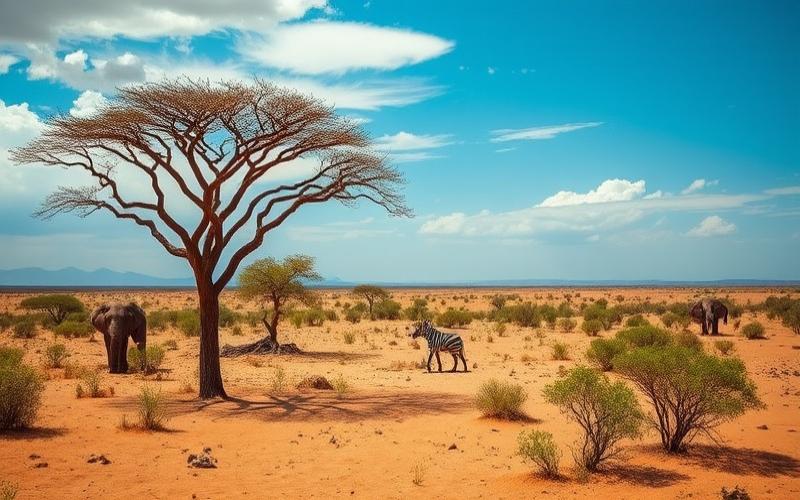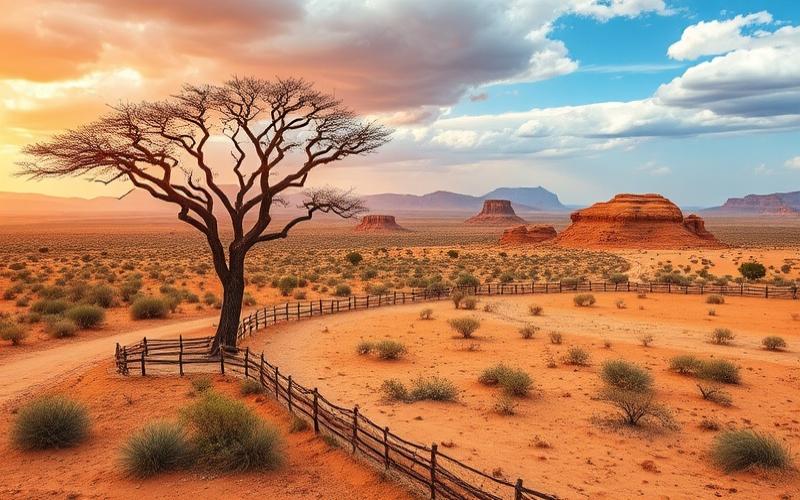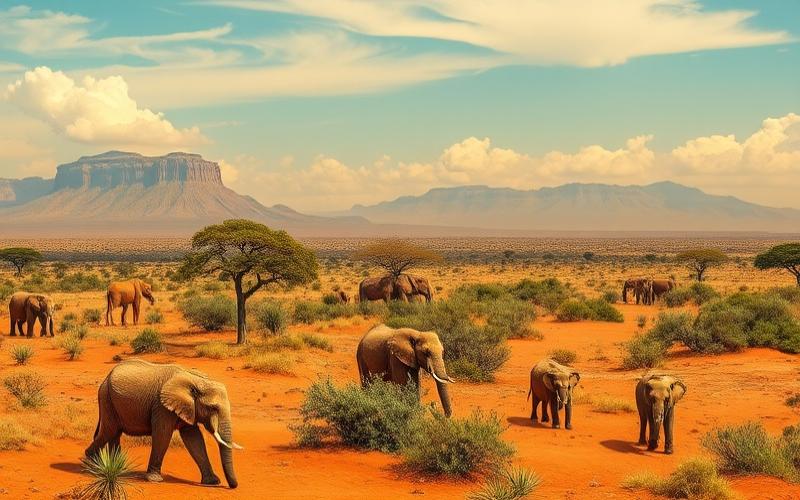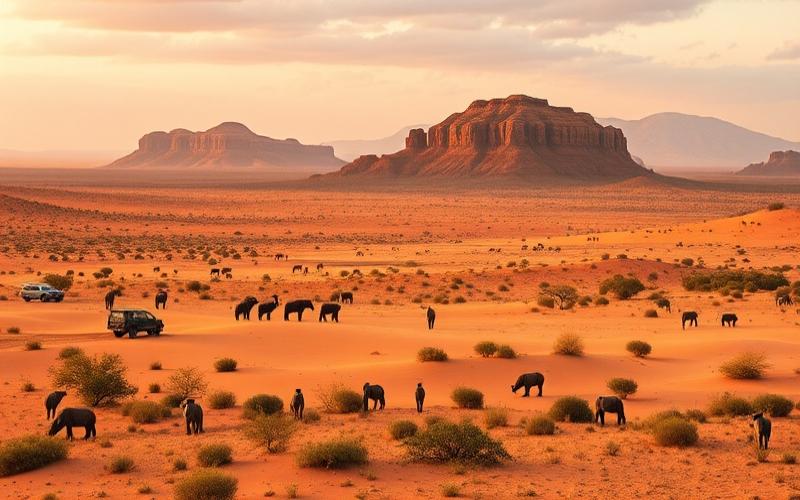
 Published on and written by Cyril Jarnias
Published on and written by Cyril Jarnias
When relocating to South Africa, understanding local religious practices is essential for integrating harmoniously into this multifaceted cultural nation. Rich in diversity and traditions, South African religious customs offer valuable insight into the values and lifestyles shaping this dynamic country.
This article aims to be a comprehensive guide to familiarize you with practiced beliefs and rituals, helping avoid cultural misunderstandings while fostering respectful and enriching exchanges with locals.
Whether you’re drawn to the dynamic spirituality of Christian churches, the ancestral wisdom of indigenous communities, or simply wish to explore the many faces of South African religious life, we invite you to discover a fascinating panorama of this unique destination.
Impact of Religious Practices on Daily Life
Major Religions Practiced and Their Influence on Daily Life
| Religion | Percentage of Population | Influence on Daily Life |
|---|---|---|
| Christianity | ~80% | Structures the calendar (Sunday worship day), inspires national holidays, influences education and family values. Many private schools are Christian. Christian rites often mark major life milestones (birth, marriage, death). |
| Islam | 1-2% | Daily practices like five daily prayers and halal observance. Ramadan alters school and work schedules in some Muslim neighborhoods. Mosques visible in major cities. |
| Hinduism | 1-2% | Traditional festivals such as Diwali celebrated mainly in Durban/Newcastle; local Hindu temples present; family rituals influence diet (vegetarianism) and organization of family ceremonies. |
| African Traditional Religions | ~15% | Influence on traditional healing practices, initiation ceremonies and ancestor reverence. Strong presence in rural areas with community rituals. |
Interpretation of Major South African Religious Holidays
South Africa is a religious mosaic where Christianity, Islam, Hinduism, Judaism and various traditional African beliefs coexist. This diversity translates into a plurality of holidays, each carrying deep spiritual significance and tangible societal impact.
| Religion | Major Holidays | Cultural & Spiritual Significance | Celebration Methods in South Africa |
|---|---|---|---|
| Christianity | Christmas, Easter | Christmas celebrates Christ’s birth, symbolizing hope and reconciliation. Easter commemorates resurrection, core of Christian faith. | Multilingual masses (English, Zulu…), gospel singing; community meals in churches or with family. |
| Islam | Ramadan (holy month), Eid al-Fitr | Ramadan: purification through fasting; Eid al-Fitr: festive breaking of fast marked by charity and forgiveness. | Collective prayers at mosque; sharing of traditional Indo-Malay or Indian dishes after sunset. |
| Hinduism | Diwali | Symbolic victory of light over darkness; identity affirmation for South African Indian communities. | Home illumination with oil lamps (diyas), fireworks, temple offerings followed by sweet spicy family meals. |
| Judaism | Hanukkah | Commemoration of ancient Jewish resistance and miracle of lights; community strengthening amid sometimes difficult local history. | Public candle lighting in some urban neighborhoods (Johannesburg…), interfaith exchanges during cultural events open to non-Jewish neighbors. |
| African Traditional Beliefs & Civil Society | African New Year, Heritage Day | Heritage Day celebrates all South African cultures; African New Year marks natural cycles or ancestors. | Ritual ceremonies with masked dances among some Xhosa/Zulu groups; Heritage Day: multi-faith barbecues (“braai”) among friends/neighbors. |
Cultural Impact & Social Unity
- Major religious holidays are both spiritual and social moments: they offer extended families—sometimes separated by migration history—opportunities to reunite.
- In Johannesburg and Durban, it’s not uncommon for Muslim neighbors to offer sweet dishes during Eid to their Hindu or Christian neighbors, who later share their own specialties during other festivities.
- Some expatriates report discovering during their first Heritage Day that “even far from home,” they were spontaneously invited to a friendly braai where Indian, Malay and African flavors mingled – living proof that these celebrations weave a “culinary rainbow” true to the national nickname.
Lived Anecdotes
A French expatriate recounts his surprise at the “collective intensity” of gospel singing during Easter in a Cape Town township:
“People cried then laughed together… I was invited without hesitation even though I was just a tourist.”
A teacher from Durban explains being moved when her Muslim students decorated their classroom with their Hindu classmates for Diwali:
“They all shared their favorite cakes – nobody wanted to be left out.”
Mutual Respect & Cohesion
School calendars incorporate several major religious holidays so everyone can observe their rites without stigma or excessive social pressure.
This festive pluralism fosters mutual respect embedded in the South African constitution which explicitly guarantees religious freedom—an essential pillar for a nation long fractured but now proud of its diversity united around daily coexistence.
Thus celebrations become common spaces where differences are expressed… but also rediscovered unity!
Good to Know:
Participate in local celebrations to better understand the importance of traditions, like the Heritage Day bonfire that brings communities together around shared stories. Many expatriates highlight the hospitality during Eid, where families willingly open their doors to visitors.
Behavioral Codes and Cultural Adaptations for Expatriates
South Africa is characterized by great religious diversity, framed by a constitution guaranteeing freedom of worship. The main religions and their population proportions are as follows:
| Religion | Percentage of Population |
| Christianity | 79–85% |
| No religion | 15% |
| Islam | 1.5% |
| Hinduism | 1–2% |
| Judaism | 0.17% |
| African Traditional Religions | 0.3% |
Influence on Social Behaviors and Daily Interactions:
- Christianity: Very present in public sphere, influences social values like politeness, family importance, kindness and punctuality for appointments. Formal greetings (“Hello”, “How are you?”) are appreciated.
- Islam: South African Muslims observe five daily prayers, halal food, and sometimes wear traditional clothing. Interactions are marked by respect, especially towards elders and women.
- Hinduism: Hindus follow numerous dietary rituals (common vegetarianism, beef prohibition) and celebrate festivals like Diwali. Respect for elders and community importance are notable.
- Judaism: Jewish community observes Shabbat (rest from Friday evening to Saturday evening), dietary restrictions (kosher) and holidays like Passover or Yom Kippur.
Religious Holidays and Expatriate Adaptation:
- Official holidays include Christmas, Easter and Good Friday (Christianity).
- Some communities close businesses or adjust schedules for Eid (Islam), Diwali (Hinduism) or major Jewish holidays.
- It’s crucial to research local religious calendars when planning meetings or events.
Dietary Customs to Respect:
- Muslims: Never offer pork or alcohol. Verify if food is halal.
- Hindus: Avoid beef and sometimes meat in general.
- Jews: Respect kosher restrictions (no pork, dairy/meat separation).
- Asking about dietary restrictions before a meal is appreciated.
Greeting Protocols:
- Greetings vary among communities, but handshakes remain universal.
- Among Muslims, avoid shaking hands with women if you’re male (and vice versa), unless she initiates the gesture.
- Politeness formulas and titles (“Mr”, “Mrs”, “Doctor”) are important, especially during first contact.
Impact of Religious Ceremonies and Celebrations on Professional and Social Life:
- During Ramadan, some Muslim employees may request adjusted schedules.
- Hindu and Jewish holidays may lead to absences or schedule modifications.
- Major Christian celebrations rhythm the social and family year, with numerous community events.
Practical Tips for Fostering Respect and Harmonious Coexistence:
- Inform yourself about colleagues’ and partners’ main holidays and religious practices.
- Show flexibility in organizing meetings or activities, especially during major holidays.
- Ask respectful questions about dietary or clothing customs rather than assuming.
- Avoid judgments or mockery regarding beliefs or practices.
- Adopt an inclusive attitude during celebrations, inviting everyone to share traditions if desired.
Respect and openness toward different religious communities are essential for successful integration in South Africa. A curious and benevolent attitude fosters harmonious and enriching relationships with all South Africans.
Good to Know:
In South Africa, it’s essential to respect holidays like Christmas for Christians and Eid for Muslims, and adapt work schedules considering frequent religious ceremonies that rhythm daily life; simple greetings like “hello” with a smile often suffice to show respect toward different beliefs.
Religious Freedom and Resources for Expatriates Wishing to Practice Their Religion
Legal Framework
The South African Constitution explicitly guarantees religious freedom to all, including expatriates. The Bill of Rights protects every individual in practicing, teaching and manifesting their religion without discrimination. Recent debates exist about regulating religious activities, but freedom of worship remains a fundamental recognized and protected principle. Expatriates therefore enjoy the same rights as South African citizens to practice their religion, as long as it respects public order and country laws.
Religious Diversity
South Africa stands out for great religious diversity, reflecting its history and multicultural population. Main practiced religions are:
- Christianity (approximately 75% of population)
- Islam
- Hinduism and Buddhism (particularly within Indian community)
- Judaism
- African Traditional Religions
This mosaic fosters open-mindedness and offers expatriates an environment conducive to practicing their own faith while discovering other religious traditions.
Available Religious Institutions
In major South African cities, one finds a wide variety of places of worship:
| City | Churches | Mosques | Hindu Temples | Synagogues | Other Places |
|---|---|---|---|---|---|
| Johannesburg | Very numerous (Catholic, Protestant, Evangelical) | Several large mosques | Hindu temples, Buddhist temples | Historic synagogues | Baha’i centers, African worship places |
| Cape Town | Numerous | Renowned mosques in Bo-Kaap | Hindu temples | Synagogues | Interfaith communities |
| Durban | Numerous | Large mosques (notably for Indian community) | Newcastle Hindu Temple | Synagogues | Tamil temples |
Many religious communities offer services in English and other languages, thus facilitating expatriate integration.
Expatriate Community and Integration
Expatriates can rely on various religious and interreligious support networks:
- Meeting groups in places of worship
- International religious associations present in South Africa
- Interfaith events organized by municipalities or NGOs
- Welcome and integration programs for newcomers
These networks foster cultural exchange and help build connections with other expatriates and locals sharing the same faith or open to discovery.
Inter-religious Events and Festivals
South Africa hosts numerous multicultural festivals and events:
- Durban Diwali Festival: major Hindu celebration, open to all
- Eid al-Fitr and Eid al-Adha: Muslim holidays publicly celebrated in several cities
- Easter, Christmas (Christian celebrations with open processions and concerts)
- Heritage Day: national day honoring cultural and religious diversity
- Jewish festivals, Buddhist events, Chinese New Year celebrations, etc.
These events offer expatriates opportunities to actively participate in local religious and cultural life.
Online Resources and Support
- Expatriate platforms: Internations, Expat.com (religions/communities sections)
- Official websites of major religious communities (e.g.: Muslim Expat South Africa, Jewish Board of Deputies, South African Hindu Maha Sabha)
- Specialized forums and Facebook groups for religious expatriates
- Interfaith associations (e.g.: South African Council of Churches, Interfaith Community of South Africa)
Testimonials and Personal Experiences
“Upon arriving in Durban, I was warmly welcomed by the local Hindu community. Temples regularly organize meetings for newcomers, which helped me quickly find my bearings and celebrate important holidays in a group.”
“As a practicing Muslim, I found several mosques and associations that not only offer services in English but also social and charitable activities where I met other expatriates and South Africans.”
“Religious diversity allowed me to discover new traditions while continuing to practice my own. Interfaith festivals are real bridges between communities and helped me integrate much more easily than I imagined.”
Religious freedom is firmly anchored in South Africa, and expatriates find there an environment conducive to practicing their faith, enriched by the diversity and openness of society.
Good to Know:
The South African Constitution guarantees complete religious freedom, thus offering expatriates the possibility to practice their faith within a protected legal framework; major cities host diverse places of worship and online forums facilitate integration into local religious communities.
Disclaimer: The information provided on this website is for informational purposes only and does not constitute financial, legal, or professional advice. We encourage you to consult qualified experts before making any investment, real estate, or expatriation decisions. Although we strive to maintain up-to-date and accurate information, we do not guarantee the completeness, accuracy, or timeliness of the proposed content. As investment and expatriation involve risks, we disclaim any liability for potential losses or damages arising from the use of this site. Your use of this site confirms your acceptance of these terms and your understanding of the associated risks.



